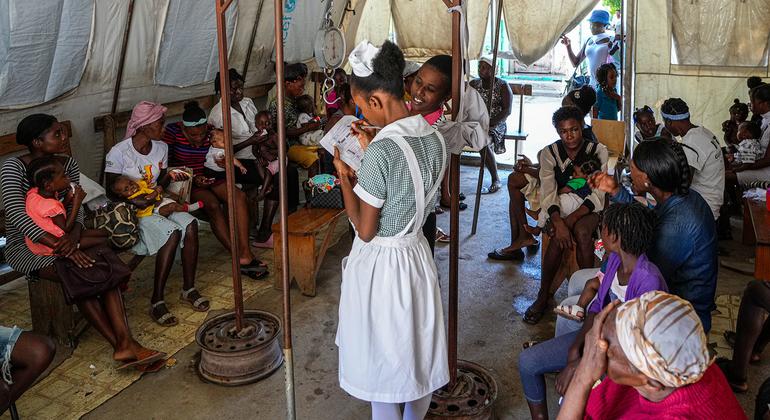Kenya has offered to lead a multinational mission aimed at providing support to the national police in order to regain control of the streets from gang rule, which has caused chaos in the country in recent months. The UN Spokesperson’s Office announced that countries such as the Bahamas, Bangladesh, Barbados, Benin, Chad, and Jamaica have also pledged support for the mission. Currently, $18 million has been deposited in the mission’s Trust Fund, with contributions from Canada, France, and the United States. Despite ongoing armed violence in the country, some positive progress has been made in terms of humanitarian aid delivery, with the World Food Programme providing assistance to displaced people and other UN agencies setting up mobile clinics at displacement sites.
The situation in Haiti remains volatile, with armed violence continuing in Port-au-Prince and the Ouest department. The UN Spokesperson reported that the Varreux fuel terminal has been closed due to attacks by gangs, but humanitarian containers have been retrieved at the Caribbean Port Service. The UN health agency WHO and UNICEF are providing medical consultations through mobile clinics, while the International Organization for Migration (IOM) is offering medical and psychosocial services to displaced individuals. Despite the challenges, the humanitarian response in Haiti is ongoing and efforts are being made to assist those in need.
The President of the General Assembly raised concerns about commodity dependence during an informal dialogue, highlighting that countries whose export revenue relies heavily on basic goods are disproportionately affected, particularly in developing countries. Excessive commodity dependence can leave countries vulnerable to economic instability, impacting both the nation and its citizens. The General Assembly President called for urgent action to address this issue, especially in the context of global discussions on debt sustainability and financial reform.
According to a report by UNCTAD, 85% of the world’s least-developed countries are commodity dependent, as well as many landlocked and small island developing nations. This reliance on commodities leaves their economies susceptible to external shocks, making them vulnerable to fluctuations in the global market. The President emphasized the need to break free from commodity dependence, stating that while challenging, it is achievable with concerted efforts from Member States and stakeholders. The increase in countries impacted by commodity dependence over the past two decades underscores the urgency of addressing this issue and finding sustainable solutions.
In conclusion, the situation in Haiti remains challenging, with ongoing armed violence and instability affecting the country. The multinational mission led by Kenya aims to provide support to the national police and regain control of the streets from gang rule. The General Assembly President highlighted the issue of commodity dependence and its impact on developing countries, calling for urgent action to address this vulnerability in the global economy. It is crucial for Member States and stakeholders to work together to find sustainable solutions and reduce dependency on commodities for economic stability and growth.









